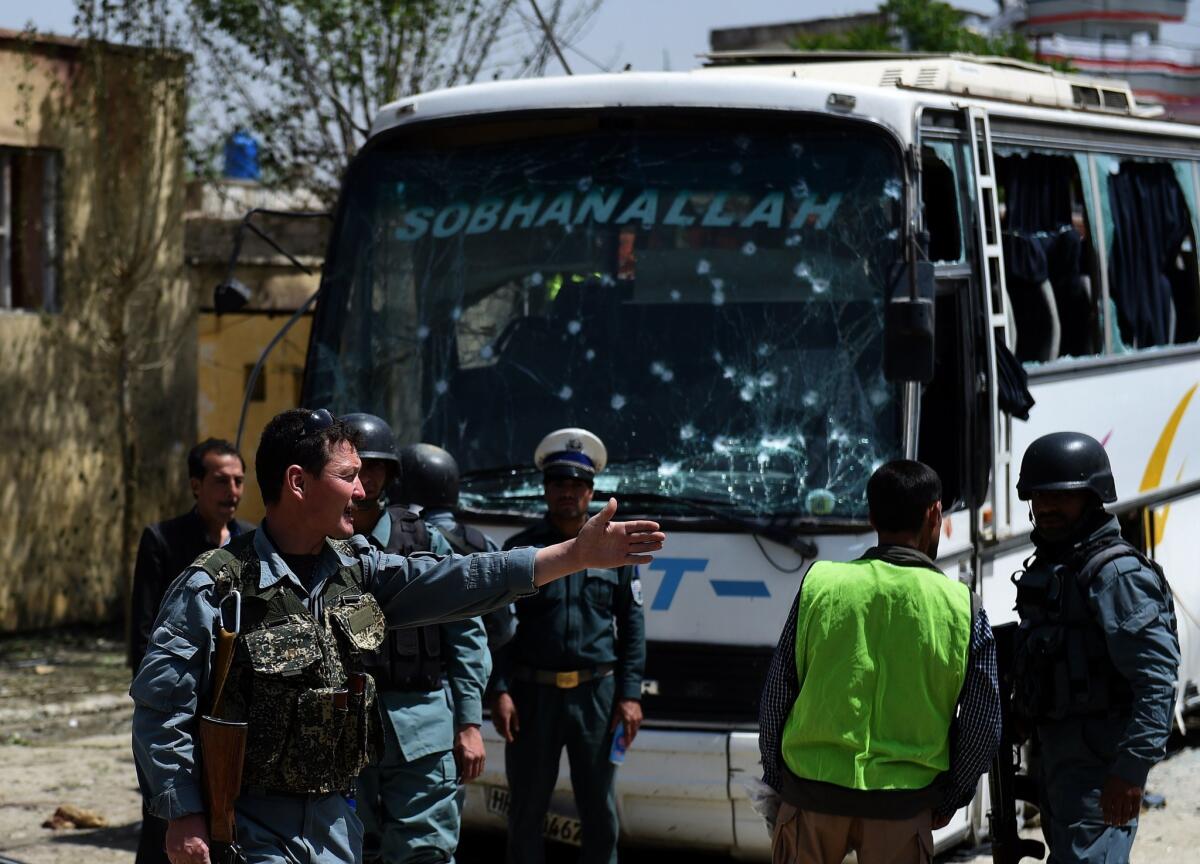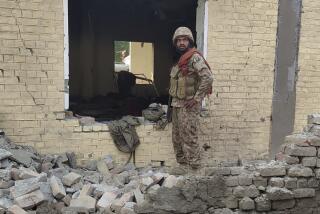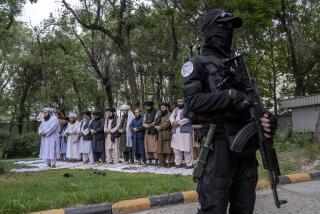Taliban attack kills 17 Afghan police during peace talks in Qatar

Afghan and Taliban delegates on Monday reported some progress after two days of exploratory peace talks in Qatar, but attacks at home that killed 17 policemen underscored the violence that continues to ravage Afghanistan.
Taliban fighters overran 10 checkpoints in the Warduj district of Badakhshan province in the remote northeast of the country late Sunday night, Abdullah Naji Nazari, head of the provincial council, said in a statement to local media.
“According to information which I received from Warduj, so far the bodies of 17 policemen were taken to a hospital and 26 other policemen are missing,” Nazari said.
A Twitter account purported to belong to the Taliban claimed responsibility for the attacks, saying they were part of the group’s annual spring offensive, which began this year on April 24 with a surprise assault in Kunduz province.
In Kabul, the Afghan capital, one civilian was killed and 15 others injured when a suicide bomber attacked a bus taking employees of the attorney general’s office to work.
Last month, Taliban forces killed at least 20 members of the Afghan National Army in another district of Badakhshan.
The latest violence occurred as dozens of delegates met for informal talks near Doha, the Qatari capital, in an effort to infuse new life into a peace process. The effort was declared two years ago but was stillborn at its inaugural gathering when the Taliban representatives raised the flag of their ousted government before the world’s television cameras, enraging then-President Hamid Karzai.
Karzai had long been critical of unofficial talks that included U.S. and European Union representatives meeting with Taliban figures while his High Peace Council was left out of the process.
The talks in the Persian Gulf city on Sunday and Monday, billed as unofficial and “not supposed to be any sort of negotiation,” were hosted by the government of Qatar and the Pugwash Council, a global conflict resolution group. The council issued a statement of “common points” that emerged during the talks, the most significant of which was probably the toned-down Taliban position on foreign forces in Afghanistan.
“Everybody agreed that foreign forces have to leave Afghanistan soon,” the Pugwash statement said. But in noting an apparent retreat by the Taliban from its insistence on full withdrawal of outside forces before formal peace talks can begin, the statement observed that “some expressed concern that there should be an agreement among Afghan political forces before the departure of the foreign forces.”
The 40 delegates, including eight from the Taliban, were also said to have voiced support for removing Taliban leaders from a blacklist that hampers their ability to attend international conferences and for the release of political prisoners.
“The government of Afghanistan will be an Islamic one,” the conferees agreed, adding that “this does not mean that minorities of any sort should be discriminated against.”
The gathering also agreed on “the value of education for both men and women,” that future peace talks should include negotiations on the country’s governing structure and constitution and that the political forces should make priorities of the fights against corruption and drug production and trafficking.
Further meetings should be scheduled “in order that the peace process be sustained,” said the statement. It also suggested that the Taliban has agreed to reopen its office in Doha to facilitate future meetings.
The delegates jointly proclaimed at the meeting that Islamic State, the extremist militia that has spread terror across the Middle East, is “alien to the tradition and desires of the Afghan people.” Islamic State claimed responsibility last month for the bombing of a bank in Jalalabad that killed 34 people.
Former Taliban officials residing in the Afghan capital, including onetime Foreign Minister Wakil Ahmed Muttawakil, were invited to the Qatar talks but declined to attend. The Taliban government was ousted in the U.S.-led invasion of Afghanistan after the Sept. 11, 2001, terrorist attacks in the United States by militants who had trained in Afghanistan with the Taliban’s consent.
Ashraf Ghani, who succeeded Karzai as president last year, has made the resumption of peace efforts a priority of his administration. Both Ghani and Abdullah Abdullah, his chief executive, have said they are closer to peace than any time in the last three decades.
Special correspondent Latifi reported from Kabul and Times staff writer Williams from Los Angeles.
Follow @cjwilliamslat for the latest international news 24/7
More to Read
Start your day right
Sign up for Essential California for news, features and recommendations from the L.A. Times and beyond in your inbox six days a week.
You may occasionally receive promotional content from the Los Angeles Times.







